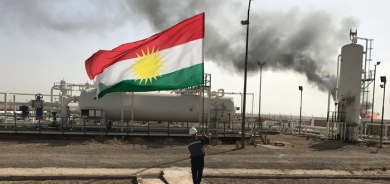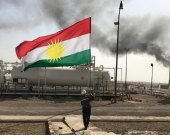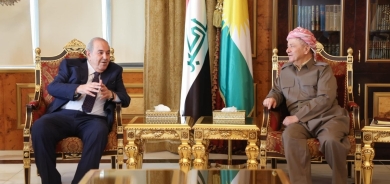British Government's Complicity in Arming Iraq's Genocidal Campaign Against Kurds Revealed in Declassified Files

Documents Uncover Britain's Prioritization of Diplomatic and Commercial Interests Over Kurdish Lives
In a shocking revelation, declassified files from the UK National Archives have exposed the extent of Britain's complicity in arming the Iraqi regime during its genocidal campaign against the Kurdish population in the early 1960s. The documents reveal a disturbing chapter in British history, showcasing the government's awareness of the severity of the Iraqi army's actions and its conscious decision to support a regime engaged in genocide.
Background:
The Iraqi government, led by the nationalist Ba'ath party, launched a full-scale attack on the Kurds in northern Iraq in June 1963 in response to Kurdish demands for autonomy and a share in Iraqi oil. British officials were well aware of the brutality of the Iraqi military's methods, describing it as a "terror campaign." Despite this knowledge, the British government not only approved major arms exports to Iraq but also explicitly knew that these arms would likely be used against the Kurdish population.
Arms Exports and Complicity:
In October 1963, as the Iraqi government intensified its offensive against the Kurds, the British government approved the export of high explosive demolition slabs explicitly intended for the destruction of Kurdish villages. The files highlight the British government's awareness of the severity of the Iraqi army's actions, describing it as a "terror campaign.”
Alec Douglas Home, the foreign secretary at the time, expressed a desire to meet Iraq's arms requirements quickly, approving the export of 250 Saracen armored personnel carriers, artillery ammunition, and rockets for Iraq's Hawker Hunter warplanes, among other weapons. The deal was valued at £6 million.
The files indicate a deliberate effort by the British government to prioritize good relations with the Iraqi rulers and reduce their reliance on Soviet military supplies, overlooking the potential impact on the Kurdish people.
Awareness of Genocide:
As the offensive against the Kurds continued throughout 1963, British officials were aware that the Iraqi aggression they supported might constitute genocide. Reports from the British embassy in Baghdad detailed brutal methods employed by the Iraqi army, indicating an intention to reduce the Kurdish minority in Iraq.
The British government also sought to prevent the United Nations from discussing allegations of genocide in Iraq, with a draft Foreign Office brief instructing Britain's delegation to the UN to oppose any discussion of the matter.
Continued Support Despite Atrocities:
Despite growing evidence of Iraqi atrocities, British arms exports and training continued, with the Labour government defying calls to halt arms exports to Baghdad in 1965. The documents reveal that the British government remained indifferent to Kurdish suffering, prioritizing diplomatic and commercial interests.
Legacy of Complicity:
The consequences of these actions are still felt today, with the 1988 chemical weapons attack by Saddam Hussein on the Kurds serving as a tragic reminder of the international community's past decisions. The files shed light on a disturbing chapter in British history, revealing the lengths to which the government went to support a regime engaged in genocide.















